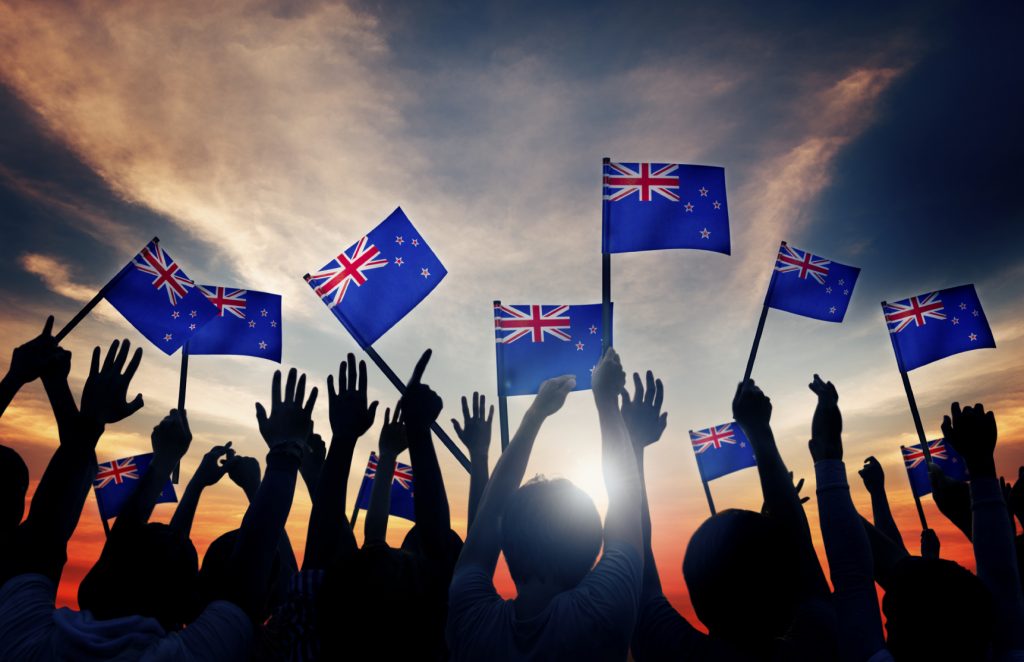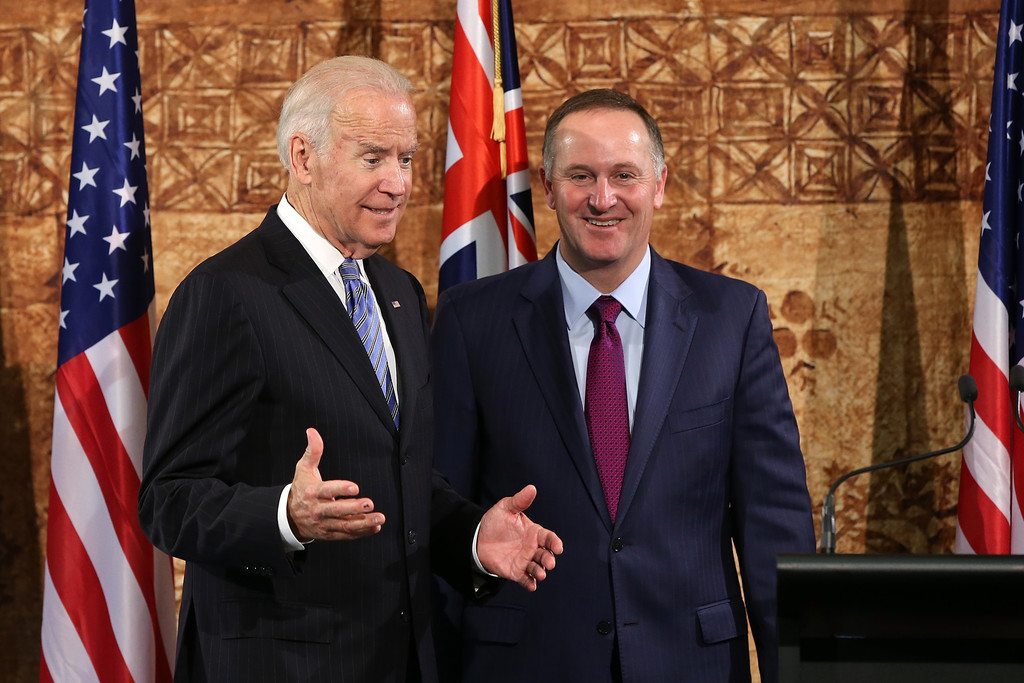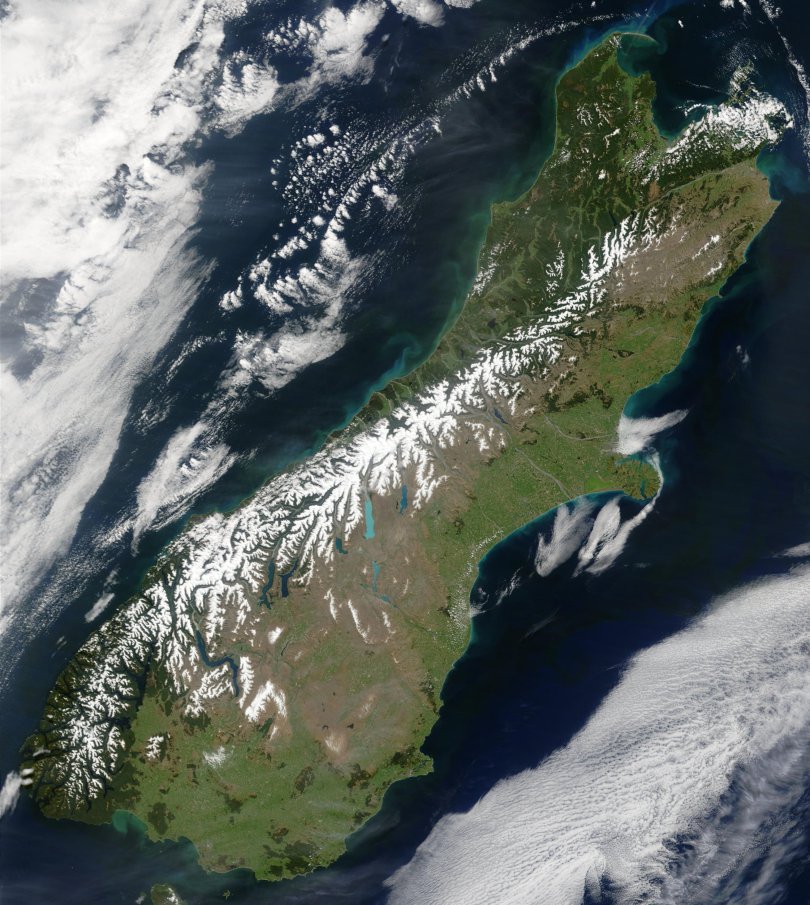By
Rupen Savoulian
Australia – it is high time to stop treating New Zealand as a second-rate cousin.
New Zealand is a beautiful, picturesque country. I had the wonderful privilege of traveling through both the North and South Islands of New Zealand, immediately prior to the terrible earthquake that devastated the east coast of the southern island. We will get to the earthquake in a later article, not the current one – stay tuned. However, firstly, it is necessary to dispense with some Australian-manufactured stereotypes and myths about the ostensibly poorer cousins across the Tasman Sea.
Australians have a long history of ridiculing our compatriots across the sea – jokes about the Kiwis abound in Australia. The sporting rivalry is fierce – whether it is the long-standing competition in the cricket, or the clashes between the Wallabies and the All Blacks in the rugby union; there is no shortage of ferocious opposition. The BuzzFeed news service carried an article entitled “32 Reasons Why Australia And New Zealand Share The World’s Fiercest Rivalry”, in which the author explains that while Australia may feel overconfident with regards to the size of the country, New Zealand wins hands-down when it comes to breathtaking landscape.
Australians built attractions, such as the Sydney Opera House and Sydney Tower, to rival the natural wonders of New Zealand. The latter responded by building the SkyTower in Auckland, which is taller than any building in Australia…….and on and on the rivalry goes.
However, setting aside the stereotypes that frequently infect any discussion between Australians and New Zealanders, let us take a closer look at Aotearoa – the land of the long white cloud. The similarities between the two British-sponsored settler-colonial states on either side of the Tasman far outweigh any purported differences. The origins of both colonies as outposts of British capitalism, and their historical characteristics as New Britannia settlements, weigh heavily on the current features of the two nations.
Let us not forget, that without the participation of New Zealand, there would be no Anzacs. Last year was the centenary of the Anzac landings, and New Zealand hosted its share of commemorative activities to remember those New Zealanders who served, and never returned. This year, Anzac exhibits were given prominence (as they usually are) in celebrations about the role of New Zealand troops in British wars overseas. In Wellington Museum, there were long queues to view the Great War exhibition, which detailed the history of New Zealand’s contribution to the British empire’s military campaigns in World War One.
New Zealand, like Australia, has a long history of serving as a mercenary force, firstly for the British empire, and currently aligning itself with the goals of the United States. The United Kingdom was the industrial juggernaut that stood at the apex of the British empire, it was the dominions, like New Zealand, which became more British than Britain and loyally participated in British expeditionary forces wherever the Empire deemed necessary. Chris Trotter, political and social commentator for the New Zealand media outlet Stuff, wrote an article placing the current participation of New Zealand troops in the Middle East within a historical context. Trotter remarked that:
Since the late-19th century, this country has happily marched in the great expeditionary columns that have trudged their way across the dry and dusty regions of the world. From the South African veldt to the Sinai desert, the Kiwis’ broad-brimmed hats have dutifully bobbed along behind the pith helmets of their Imperial British mentors.
That sounds familiar to Australian readers.
Chris Trotter’s article “New Zealand’s only Middle Eastern exit strategy – leave now” elaborates that troops from New Zealand participated in the mad scramble for colonial possessions in the wake of the Ottoman Turkish empire’s defeat in World War One. Britain wanted to acquire the land of Palestine, and throughout 1917-1918, took steps to forcibly take the country, with the willing participation of soldiers from New Zealand:
All New Zealanders know about their country’s role in the invasion of the Gallipoli Peninsula in 1915. Less well known is the role that Kiwis and Aussies played in driving the British Lion’s blood-stained claws into the carcass of the Ottoman Empire’s Middle Eastern provinces – especially Palestine – between 1916 and 1918.
The New Zealand Government’s reticence about drawing Arab attention to the role this country played in the emergence of the State of Israel is entirely understandable. What purpose would be served by reminding Arab historians about the Kiwi and Aussie troops responsible for the deaths of more than 200 Palestinian men and boys in the tiny village of Surafend in 1918? Or about the fulsome vote of thanks delivered to the Antipodeans by residents of the nearby Jewish settlement of Richon Le Zion?
Dredging up these historical incidents might prompt Egyptian historians to investigate the role played by the New Zealand and Australian mounted infantry in suppressing the Egyptian nationalist revolt against British domination which exploded in the final months of 1918 – a task made much easier by the Antipodeans’ already fearsome reputation for brutality against Arab civilians.
Questions might be asked about whether or not New Zealand’s behaviour towards the Islamic world has changed all that much over the course of the past 100 years. True, the British Empire is no longer the dominant global superpower, but its American successor would appear to be no less persuasive when it comes to drawing the Antipodeans back into the marching columns of imperial adventures.
Once again, Australian readers would recognise the eerie similarities between themselves and their compatriots across the Tasman Sea.
US Vice President Joe Biden and New Zealand Prime Minister John Key – Photo – Fiona Goodall
In July 2016, US Vice President Joe Biden turned up in New Zealand for a series of wide-ranging meetings with the political leaders in Aotearoa. Biden’s stopover was aimed at ensuring that New Zealand aligns itself unequivocally with the ambitions of the United States in the Asia-Pacific region. Biden, who had visited Sydney Australia prior to his arrival in New Zealand, made menacing speeches about the power of the United States, and in particular its naval forces with respect to China. Bellicose and belligerent, Biden was in full form as he elaborated that the US was intent on achieving the status of the dominant power in Asia, and was not going to budge an inch.
However, the cowardly bully is never confident without satraps behind him. Biden wanted to ensure that New Zealand remained fully committed to the United States. Wellington has lined up with the Americans, but has also pursued its own economic interests by maintaining friendly and burgeoning relations with Beijing. New Zealand’s minister of defence, Gerry Brownlee, maintained that while his government cooperates with the United States, it was not going to give up its lucrative connections with China. He stated that New Zealand’s defence relationships with the United States and China were not mutually exclusive.
In a further strengthening of American-New Zealand military ties, Biden confirmed that a US warship would be visiting the latter country as part of the New Zealand Navy’s 75th anniversary celebrations. The US military will neither confirm nor deny if the warship contains nuclear warheads – and the New Zealand government stated that it will not ask. That marks a reversal of the long-term commitment of New Zealand to keep the country nuclear-weapons free, since the decision by the Lange government in the 1980s to ban nuclear weapons from the country’s territory.
We briefly alluded earlier to the earthquake that hit New Zealand’s south island in November 2016 – as stated, we will get to that subject in the next article. That earthquake had complex causes, but relates to the fact that the south island straddles the boundary between two continental plates – the Australian and the Pacific. The constant pushing and shoving between these plates pushes up rock strata to create mountain ranges, such as the Southern Alps. The tectonic dragon – as the New Yorker explains – is alive and well in New Zealand. Forty miles off the coast of Wellington is the Hikurangi Trench, where the Pacific plate moves westward underneath the Australian plate. However, on the South Island, the Australian plate is moving eastward and submerging beneath the Pacific plate.
Southern Alps
We will get to all of that in the next article – stay tuned.
However, there are other human-induced earthquakes that have rocked New Zealand, and their effects are just as devastating. The political earthquake that is neoliberal capitalism has left its imprint on the people of New Zealand, destroying lives and leaving behind shattered wreckage in its wake. Cutbacks to employment, reducing social security, pushing people off welfare in a punitive drive to allegedly balance the budget books, has resulted in social dislocation and increasing poverty in the country. While focusing on forcing increasing numbers of people off welfare may make the books look like they are balanced, it fails to take into account the full social and economic costs of doing so.
Most of the corporate media have been in hysterics about the political earthquakes of Trump and Brexit – these have implications for New Zealand as well. However, we will leave that for the next installment. While everyone is screaming shrieks of desperation at the emergence of Trumpism in America (and Tory Brexit populism in the UK), let us all relax, have a drink, and maintain cool heads. No need for frenzied delirium at developments in Britain and the United States.
For now, let us emphasise that what a nation chooses to remember and forget from its history helps to shape its identity. Vincent O’Malley, historian and writer from New Zealand, referred to this proclivity when writing about the British-Maori wars. The Anzac episode is heavily promoted and commemorated – the Maori are left forgotten, homeless on the streets of Auckland, detritus left behind by the neoliberal project and ignored by us Australian tourists as we enjoy the glitzy shops of Queen Street. The Polynesian Maori nations fought tremendous wars in order to be recognised as sovereign people in their country. Walking down the streets of Auckland, as we gave our last New Zealand dollars to the homeless, we came to realise that the Maori deserve better than trite homilies about ‘not living in the past’ and ‘just get over it’.
This is not to suggest that there has been no progress at all in the fight for Maori self-determination and cultural identity – by no means. But when an earthquake hits, it wreaks destruction – and it takes concerted effort to rebuild from the wreckage. In a twist of irony, it is us Australians that like to complain about the mythical ‘Kiwi layabout’, that breed of white New Zealander that comes to our shores purely to live off our supposedly highly generous social security system. If only the first boat person to arrive in Australia, Captain Cook, had been told to turn around and go back to where he came from, the history of Australia (and New Zealand) would be remarkably different.
There is a social and political earthquake shaking New Zealand – the trading of our ethics and social values for money in a neoliberal society. As the authors of Socialist Voice Aotearoa put it – we are witnessing the demise of compassionate New Zealand for money, and we must halt its decline. When social values and cross-cultural community solidarity decline, we see the rise of homelessness, social disruption and human misery. New Zealand may be far away from Europe, the United States and Britain, but its fate is inextricably bound up with the processes of neoliberal globalisation that has been carried across the world. New Zealand may be geographically small, but its characteristics and destiny are mightily important for all of us.





No Comments Yet!
You can be first to comment this post!